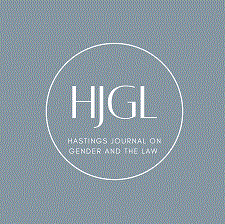
Abstract
On its face, the suggestion that gay and lesbian students, along with all other students, should be protected from violence and harm in public schools does not seem to warrant controversy. Yet, disputes over this issue threaten to consume school communities, as school officials wrestle with complicated legal requirements and emotional stakeholders. Contributing to the turmoil is the fact that school officials cannot begin to address the safety concerns of gay students strictly within a legal framework without finding themselves frustrated by a number of conflicting mandates. On the one hand, schools are obligated under Title IX and the Equal Protection Clause to intervene and take reasonable corrective action when gay students are sexually harassed by other students. Schools must also be careful to protect the speech rights of gay students under the First Amendment. On the other hand, schools cannot ignore the Free Exercise rights of religious parents and students who often object to policies that provide gay students with support groups, as well as policies that mandate discipline for students who "discriminate" against gay peers. Consequently, the law may not provide the mechanism, and courtrooms may not provide the forum, to successfully address disagreements that surface over gay and lesbian students. Indeed, one might argue that judicial proceedings may do more to exacerbate such conflicts than resolve them. However, school officials can, with creative and courageous leadership, find a "third way" to deal with these disputes-inviting community stakeholders to participate in a policy process built on the principles of public engagement, consensus and mediation. Professor Doty presents the experience of the Modesto, California City Schools, which organized a bold initiative to obtain unanimous community support to prevent abuse of gay students within the school system. Examining both the origins of the conflict, which involved heating arguments from people of faith within the community, as well as the process that led to a positive outcome, Professor Doty suggests that by utilizing Alternative Dispute Resolution, officials can negotiate the minefields and build a school community in which all citizens are committed to the safety and well-being of gay students.
Recommended Citation
David S. Doty,
Finding a Third Way: The Use of Public Engagement and ADR to Bring School Communities Together for the Safety of Gay Students,
12 Hastings Women's L.J. 39
(2001).
Available at: https://repository.uclawsf.edu/hwlj/vol12/iss1/3


